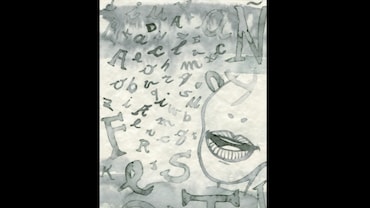- HOME
- /
- Conversations
- /
- In My Opinion
- /
The Future Of Movies: Cinema In Times To Come
Specialists will be replaced by software; the individual will be foregrounded
 Image source: Indiapicture
Image source: Indiapicture
We’ve reached the age of entertainment saturation. The sheer amount of fiction being released daily means you’ll never have the sense of being caught up again. The book, whose demise everyone has been predicting for a decade, is doing fine between digital and print. Films, another medium that’s supposedly under threat, is going to survive too—but in the process, it’s going to have to evolve.
The most fundamental divide is one we’re already seeing in action— theatres versus streaming. As we go forward, the convenience of watching films at home on large and powerful TVs will induce more people to stay away from the theatre experience with its attendant woes: traffic, overpriced food and inconsiderate audience interruptions. Studios are already biased towards releasing big-budget spectacles in theatres, relegating dramas, romcoms, thrillers and other movie genres to streaming. The mega-movie experience will be even larger, and other screenings will be niche, specialized events: festivals, group binge-watches or combined film/panel meets.
Most films, however, will be seen on screens that get smaller and smaller, and to compensate, their diversity will only grow. There will be new kinds of films made, but more importantly, new kinds of people will make them. Look at the explosion of material on platforms such as TikTok, and imagine the equivalent in full-length cinema from people ignored by large corporates—underrepresented groups, non-celebrity creators. Films are expensive to produce, which is why entry barriers are still high, but with new technology we’ll find a boom in low-budget, small-crew, risky-idea cinema—a movie equivalent of the seismic changes that have already transformed the music and publishing industries as entry barriers lowered and systems became more democratic and more chaotic.
Over the next 20 years, expect major shifts on the technical front. What’s more, specialists will get replaced by software. As cameras improve and artificial intelligence (AI) gets better at fixing visual glitches, cinematographers will largely become obsolete, except as camera operators. Similarly, music and sound work will be done by machines. In time, actors, writers and directors will be optional as well. Already AI-generated scripts exist, and animation’s ability to generate human faces and bodies is getting incredibly sophisticated. One day, the idea of creating your own films sitting at your computer will become a reality.
The entertainment industry, meanwhile, will move into virtual and augmented reality filmmaking to render the process more immersive, more addictive. We’ll see experiments with interactive film, where you choose where the story goes, perhaps even become the protagonist with a VR headset. They’ll find a way, with haptic bodysuits and simulators, to integrate touch, smell, taste. When smart-glasses and contact lenses become widespread, you’ll have a large-screen experience no theatre can match.
In India, I suspect, things will play out a little differently, given the public’s obsession with stars. As soon as technology allows it, we’ll see digital avatars of our heroes achieve immortality, playing out endless sequels of their hits well after their physical deaths—not just film stars, but cricketers, politicians, generic celebrities, gifted acting and action talents. It’ll be challenging for Indian filmmakers to make anything truly innovative, as both censors and markets will steer them towards money-making Bollywood formats. But when anyone can create lavish traditionalist song-and-dance blockbusters, it’s only a matter of time until even our audience gets bored, and that will lead to something truly interesting.






